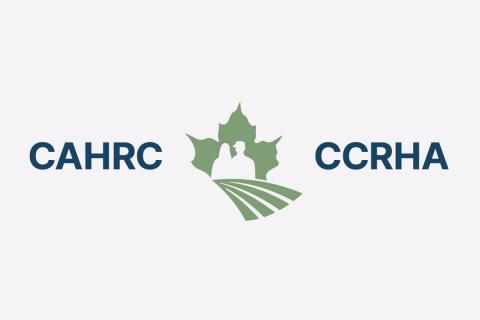Take Korotu Technology, for instance, a sustainable technology startup focused on natural climate solutions, based out of Toronto and Vancouver. Their mission is to be able to provide the technology to help key stakeholders better understand, monitor and support natural climate solutions – for forests, wetlands, grasslands and agricultural lands. And farmers are a big part of that.
We interviewed Sean Rudd, Founder and CEO of Korotu Technology, to find out more about what they do.
“We’re a clean tech company that applies remote sensing technology using satellites in space and artificial intelligence (AI) to produce environmental reports for clients,” says Rudd. “We measure carbon in forests and how those forests are changing, as well as the state of grassland habitats. We're also interested in croplands and wetlands associated with agricultural production.”
“For example,” he explains, “we’ve been involved in monitoring grasslands to help protect bird species. One of the projects we’ve been involved in is a delayed hay program. Farmers sign up and receive a small financial incentive to delay mowing until after July 16. This gives birds like bobolinks the habitat they need for nesting. Remote sensing technology can tell us where the best bird habitats are and help us prioritize which fields should be targeted.”
Sean continues: “There’s also an important forest habitat on croplands. We have a project involving farms in several different provinces to calculate the carbon storage of those forests and see if we can generate some carbon credits for the farmers involved.”
Building bridges with agriculture for employers and students alike
How did a startup like Korotu have the capacity to take on such projects?
An initiative created by the Canadian Agricultural Human Resource Council (CAHRC) called Growing Opportunities has helped make it possible through their Student Work Subsidy Program (SWPP).
Growing Opportunities, funded by the Government of Canada through Employment and Social Development Canada (ESDC), connects employers, post-secondary institutions and students. The goal is to establish sustainable working relationships between these groups to be able to meet future labour demands for agriculture.
A not-for-profit organization focused on addressing human resource issues facing agricultural businesses across Canada, CAHRC conducts labour market research and develops human resources supports for farm employers. They have also been investigating under-represented groups in agriculture as possibilities for strengthening the workforce – including young Canadians.
Through SWPP, Korotu has been able to hire more than 10 students since they first applied for funding in 2021. The students have mostly come from disciplines not necessarily associated with agriculture: software engineering, geography and even psychology. In fact, most of the students they have hired do not have an agriculture background or any agriculture experience. Essentially, in working with Korotu they were learning the agricultural industry for the very first time.
“A lot of the students we talk with are really interested in the environment and are well informed about climate change and social issues,” states Rudd. “They have a strong desire to make a difference. For many of them it’s a surprise to be able to take their technical skills and apply them in a real world setting to an area like agriculture. There is a strong link between agriculture and many other disciplines we don’t think of as agriculture-related.”
“We need to be able to reward producers who are applying the best practices related to the environment,” he continues. “Agriculture is going to need more technical people to understand data, develop computer programs and interpret remote sensing information. What these internships are doing is giving students practical experience and introducing them to different possibilities in terms of a career. It’s a great opportunity to get more young people into agriculture from a diverse range of backgrounds.”
A streamlined approach to providing support
Korotu got involved with Growing Opportunities through their relationships with post-secondary institutions.
“We started by making connections with universities,” Sean comments, “mostly in Ontario and British Columbia. Many of the colleges or faculties we are working with have work-integrated or co-op learning programs where a work component is a requirement of the program. That’s where we found about CAHRC’s wage subsidy program.”
He adds, “The talent and enthusiasm coming out of our universities today is fantastic. As well as having well-defined work descriptions, this program makes it financially more feasible to hire students. It covers a sufficient amount of the wages. And it’s a relatively simple application process. As well, CAHRC’s support over the duration of the student placements has been great. It’s pretty streamlined in terms of grant funding. If we had questions, we sent an email and promptly got a response.”
Contributing to a dynamic and resilient industry
Since the Fall of 2021, 155 employers benefitted from 350 student placements through 81 post-secondary institutions through SWPP. The response has been overwhelmingly positive from both employers and students – and CAHRC only expects those numbers to grow.
“The relationships that we have fostered between the agriculture employers, post-secondary institutions and students have really generated awareness as to how fascinating and dynamic the agriculture industry is,” comments Jennifer Wright, CAHRC Executive Director. “With the Government of Canada’s help, over the past year we’ve put over a million dollars into the industry in the form of subsidies. And the engagement with employers has been fantastic. They really want this – and students do too.”
Initiatives like the Growing Opportunities SWPP help employers maintain a viable workforce, attract new talent to the field, and build understanding and awareness of potential Ag careers. Through the efforts of CAHRC and the support of their partners, huge strides are being made to ensure a healthy future for agriculture across Canada.
